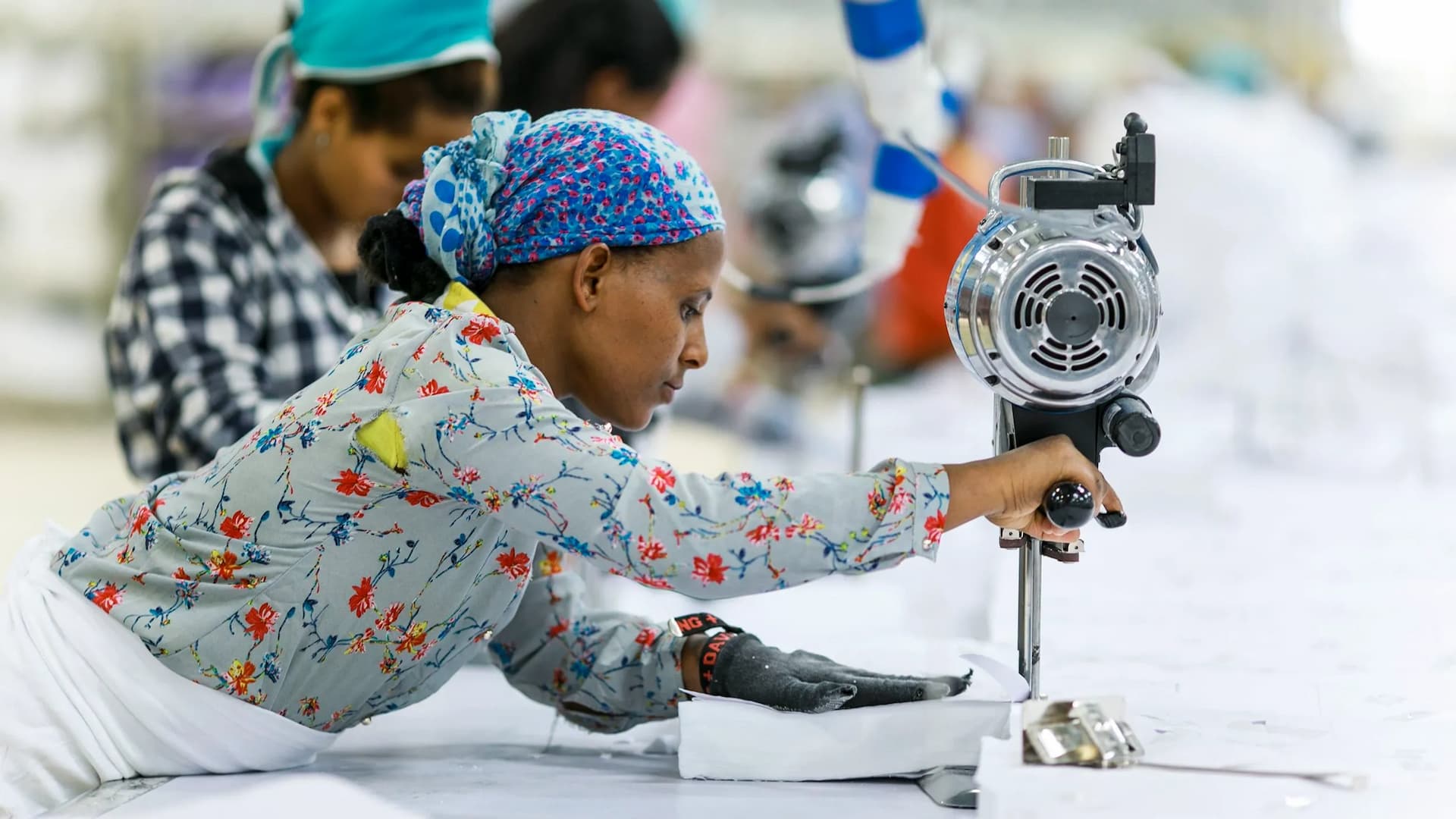Progress for 0 ad
Progress for 1 ad
Progress for 2 ad
Progress for 3 ad


Munir Shemsu
Addis Ababa, Ethiopia

Six decades after Ethiopia codified its first labor laws, informality persists, freedom of association remains constricted, and there are no national minimum wage provisions. With the rise of artificial intelligence and increased automation across industries, experts fear that Ethiopia’s belated experiment with minimum wages could be rendered as little more than a symbolic gesture, arriving too late to make a difference in a transformed labor landscape.
At the 22nd International Conference of the Ethiopian Economics Association (EEA), held last weekend, the question of introducing national minimum wages took centre stage during the first panel. The discussion unfolded against a backdrop of inflation, shrinking purchasing power, and a labor market in distress.
Nearly six years after Ethiopia’s parliament ratified a proclamation that introduced the concept of a wage board, little progress has been made. The Board, meant to issue timely revisions to minimum wages by considering macroeconomic conditions, has yet to formalize its powers with a pending bill slated to reach the Council of Ministers.
Addis Kassahun (PhD), Vice President of the EEA, blamed rising inflation, new taxes, and soaring unemployment for pushing a wartime economy from a “growth theme to a survival theme,” exacerbating labour displacement. He called for comprehensive reforms: a clear legal framework, credible data-gathering systems, mechanisms for social dialogue, and dispute resolution bodies.
The VP questioned how civil servants had been living on around seven dollars a month during the past few years of double-digit inflation.
“Our citizens are suffering in continuity,” he said. “Accurate wage data should be used to reach policy decisions.”
Despite Ethiopia being a signatory to the 1928 wage-fixing machinery convention, it remains one of four African countries without a minimum wage system. Concerns about decreased foreign direct investment, a large informal sector, and questions of implementation capacity are often cited by researchers as derailing factors.
Ethiopia’s Ministry of Labor & Skills (MoLS), a federal institution tasked with overseeing labor concerns in the country, has barely made any headway with the minimum wage issue.
Tiumezgi Berhe, Labor Inspection Head at the Ministry, hinted at the potential implementation of sector-specific minimum wages leveraging insights from neighboring African countries. He said a thorough study had been conducted that will inform the crafting of a piece of legislation that sets up the establishment of a wage board.
“A tripartite wage board should be able to address many of the issues,” the official said.
In the half-decade since a wage board has been teased, the purchasing power of households has been eroded by consecutive years of inflation and a rapid depreciation of Ethiopia’s currency. Despite the government attempting to cushion the blow from a floated currency last year with a 91 billion Birr injection to civil servants, private sector workers have only been served up new indirect taxes in the last fiscal year. Furthermore, even the modest uptick in salary scale to civil servants amounted to a maximum of 3500 Birr or around 26 dollars a month for the lowest-paid government employees.
For Dawi Ibrahim, the founding president of the Confederation of Ethiopian Trade Unions (CETU), the delayed implementation of minimum wages is a delay in social justice. He characterized the current wages structure in Ethiopia, further undermined by inflation, as “starvation wage.”
“There is a cost-of-living crisis in the country,” Dawi told Shega.
While the once-exiled labor activist acknowledges the need to balance minimum wages with considerations for employers, he urged for the imminent rollout of national rates. He pointed out how the rest of the world has begun discussing livable wages while Ethiopia has yet to implement minimum standards.
But with as many as 800 million jobs at risk of displacement by automation through artificial intelligence by 2030, of which most are labor-intensive, the impacts of technology on labor forces in low-income countries could be unlike anything before. Workforces in low-income countries with limited skills are particularly exposed. While concerns about job losses or job displacements due to automation are far from new, the weekly advances in robotics and generative AI suggest that the disruption could arrive more quickly than anticipated.
Dawi believes that even with the inevitable disruption of AI, labor laws can proactively adjust to protect workers' rights. He suggested that new technology tools can also be used to organize and mobilize workers to safeguard workers' interests. For the veteran labor rights activist, no new technology or change to the nature of work itself can excuse delaying efforts to establish minimum wage laws.
“Ethiopia has laws that dictate prices for everything from vegetables to land. How can it overlook the amount paid to the labor force?” Dawi questioned.
Whether the coming wave of automation will accelerate or paralyze Ethiopia’s wage reform efforts remains to be seen. But absent meaningful protections, the country’s workforce may find itself priced out not only by inflation, but by the future itself.
👏
😂
❤️
😲
😠

Munir Shemsu
Munir S. Mohammed is a journalist, writer, and researcher based in Ethiopia. He has a background in Economics and his interest's span technology, education, finance, and capital markets. Munir is currently the Editor-in-Chief at Shega Media and a contributor to the Shega Insights team.
Your Email Address Will Not Be Published. Required Fields Are Marked *